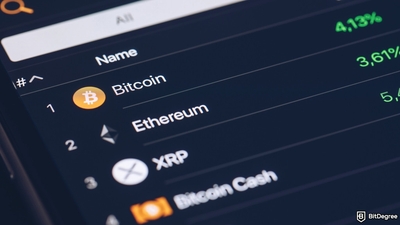Free Airdrop Season 7 is LIVE! Answer fun questions or do simple tasks to earn rewards from the $30K BitDegree prize pool. Participate Now ! 🔥
Human Rights Foundation Rolls Out Central Bank Digital Currency (CBDC) Tracker
HRF CSO says the tracking tool will help to identify the "red flags" of CBDC.
The Human Rights Foundation (HRF), a non-profit organization that focuses on promoting and protecting human rights globally, has rolled out a novel mechanism to track and educate the public on the progress of Central Bank Digital Currencies (CBDCs) around the world.
The venture, announced at the HRF's Oslo Freedom Forum, includes the launch of an online tracker and a tip line, with full operational capacity planned to launch by the end of the year.

Did you know?
Subscribe - We publish new crypto explainer videos every week!
What Are Flash Loans? TOP Ways to Make Passive Income Explained


It is worth noting that initially, the project was announced in January. The tracker is the brainchild of three professionals, a policy analyst from the Cato Institute, Nick Anthony, a researcher Janine Romer, and podcaster Matthew Mezinskis.
The liability of CBDCs rests with the central bank, thereby establishing a direct connection between the bank and its citizens. The HRF tracker warns that this relationship may expose various human rights concerns as CBDC adoption spreads.
Alex Gladstein, the Chief Strategy Officer of HRF, described the intended purpose of this tracker, stating:
It’s going to be an online resource that describes the progress of central bank digital currencies around the world, especially in authoritarian countries, and the civil liberties red flags and risks that come along with this.
Based on the data from an open-source CBDC Tracker, the majority of the world's central banks are exploring CBDCs to some extent. However, only three CBDCs have been officially launched, the Sand Dollar in the Bahamas, Jam-Dex in Jamaica, and the eNaira in Nigeria.
The website also cites 14 ongoing pilot projects, including China's digital yuan. According to HRF data, the digital yuan is used by over 300 million people. Thus, it is not surprising that the authorities in the Chinese city of Changshu decided that civil servants should receive their salaries in digital yuan.






















